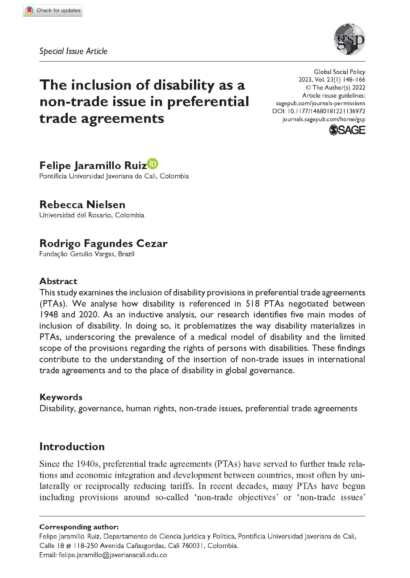
This study examines the inclusion of disability provisions in preferential trade agreements (PTAs). We analyse how disability is referenced in 518 PTAs negotiated between 1948 and 2020. As an inductive analysis, our research identifies five main modes of inclusion of disability. In doing so, it problematizes the way disability materializes in PTAs, underscoring the prevalence of a medical model of disability and the limited scope of the provisions regarding the rights of persons with disabilities. These findings contribute to the understanding of the insertion of non-trade issues in international trade agreements and to the place of disability in global governance.




